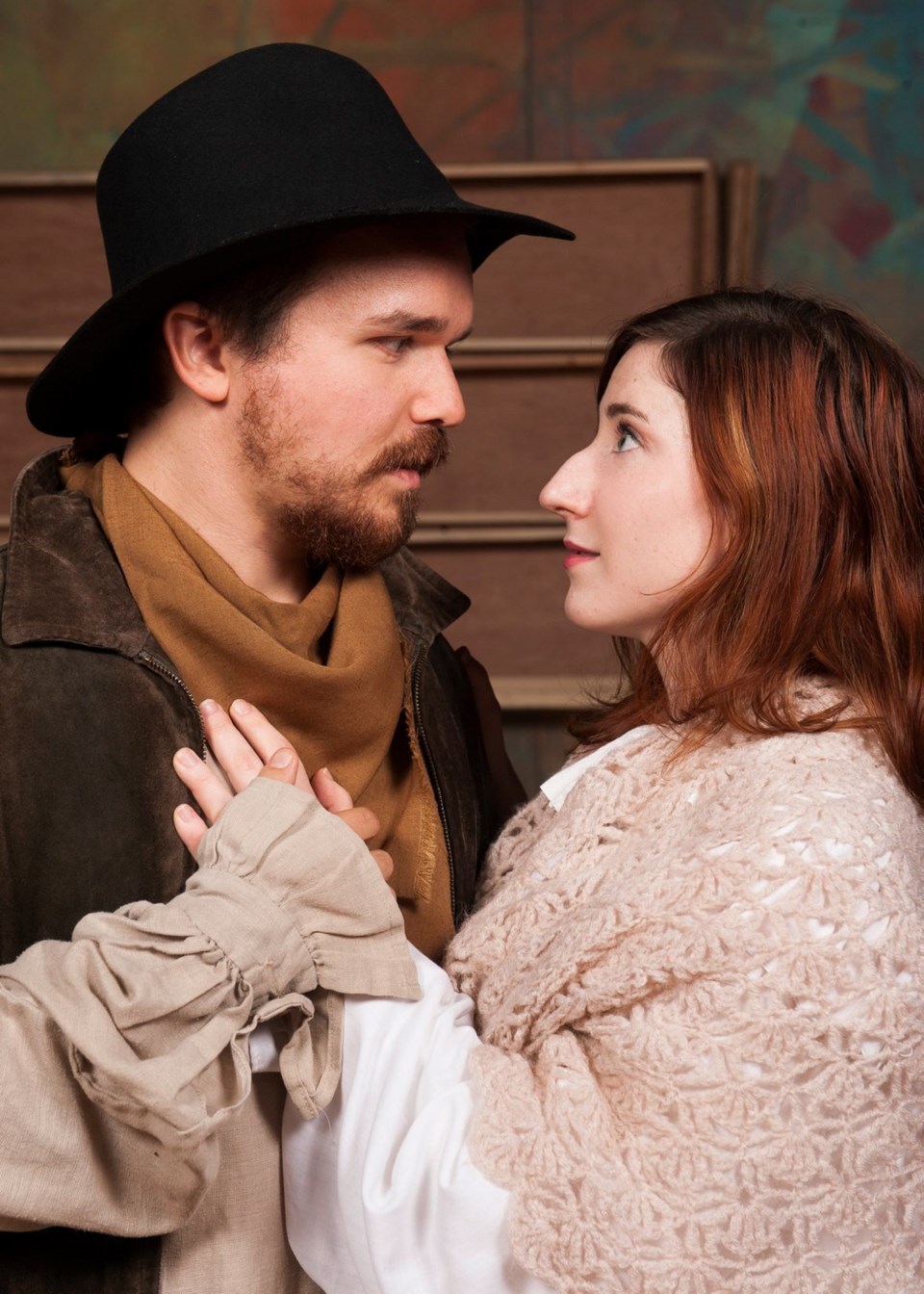REVIEW
What: The Crucible
Where: Langham Court Theatre
When: Continues to Dec. 3
Rating: 3 1/2 (out of five)
Because it’s an evergreen play popular with high schools and colleges, there’s some temptation to take Arthur Miller’s The Crucible for granted. This is a mistake.
The 1953 drama is as powerful and relevant as ever — especially so today, given the super-heated morass of misinformation that continues to boil south of the border.
Now revived with some success at Langham Court Theatre, The Crucible is inspired by the 17th-century Salem witch trials, during which accusations of witchery led to multiple hangings. Miller viewed this dark chapter as a metaphor for the McCarthyism of the 1950s, when the charge of “witch” was replaced by “Commie.”
In his play, a gaggle of silly girls dancing in the forest leads to charges of witchcraft from an equally silly minister. The situation escalates with dizzying velocity.
There are rumours of nakedness and the drinking of chicken’s blood from a cauldron. Was one of the girls seen flying in the air? Probably. Or rather, yes, she was indeed.
This entertaining production has obvious strengths. Director David MacPherson is clever at overseeing both the macrocosm and the microcosm. The spooky scenes of white-gowned girls cavorting, which occur regularly and are set to ominous-sounding (yet thankfully not melodramatic) strings, are well choreographed and powerful. And after a slowish opening half, the big court scene in Act II heats up well; one can almost smell the dangerous mania emanating from the crowd.
MacPherson is also cognizant of the importance of the intimate interactions, which are the heart and soul of this play. The most important of these occur between everyman farmer John Proctor (Alex Judd) and his virtuous wife, Elizabeth (Elena M. Kellis).
John is a flawed but essentially good man. Yes, he had an affair with their maid, the ambitious and duplicitous Abigail (Sarah Newton). But after a few spins back and forth, he finds his moral compass, refusing to partake in the big lie that has his community in a death grip.
His terrible dilemma is The Crucible’s essential core. John is a pragmatic man, a realist. For him to take the high road leading to the gallows is a heartbreakingly virtuous decision.
During Wednesday’s preview show, Judd offered a naturalistic, passionate performance — believable and brimming with humanity. Kellis, meanwhile, made Elizabeth a curiously translucent (perhaps too much so) presence, nearly saint-like yet credible.
In one of their final scenes, Judd presented himself as an almost Christ-like martyr while Kellis, now pregnant, resembled a Madonna figure. Powerful stuff.
While the 27 characters wear period dress, the set is modern and minimalist. This design by Anne Swannell works well, imbuing the proceedings with a stark power. The set is essentially large cut-outs in the shape of houses, with forest scenes projected on them. The set is attached to a pole, allowing it to be manipulated in a merry-go-round-like fashion. It’s simple, functional and clever.
As is sometimes the case in community theatre, this is a cast of varying abilities. Happily, the good actors are very good. Newton had fine moments as Abigail, particularly her seductive scenes with John Proctor.
Michael Bell particularly stood out as Reverend John Hale, a minister bought in as a witchcraft expert. Bell’s performance was dynamic — his evangelical utterances were bona fide rave-ups. More importantly, with clarity and incisiveness, he portrayed the minister’s anguish as he realizes the charges are false and deadly.
Kenneth Yvorchuk impressed as Deputy-Governor Danforth, who deludedly believes he’s doing God’s work in rooting out witchcraft. In this small but pivotal role, Yvorchuk projected well and displayed good stage presence, bringing out the character’s wrong-headed gravitas.
This is a complex, challenging and long play — two hours and 45 minutes with intermission. The cast and crew has obviously done a great deal of work, and it shows on stage. Disturbing, elucidating and still topical, this is a satisfying night of theatre.
